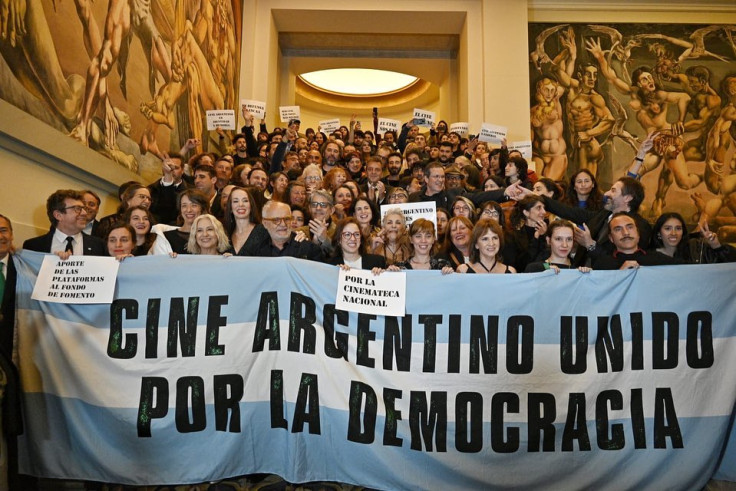
Prestigious film directors Pedro Almodóvar and Alejandro Gonzalez Iñárritu joined Argentine artists in rejecting a now-reversed decision by the Milei administration to defund cultural areas such as the National Institute of Cinema and Audiovisual Arts (INCAA) and its film schools (ENERC), according to a Variety report.
Amid strong opposition from various sectors of the country's cultural scene, the Argentine government reversed course on several articles set to implement the financial cuts.
The decision intended to follow through on a broader rallying cry by Milei, who aims to slash state spending as a strategy to address the ongoing economic crisis, marked by 211% inflation in the last year, as reported by the Argentine Institute of Statistics and Censuses (INDEC) in December.
Over 300 directors, producers, actors, and technicians from around the world joined an initiative by the collective 'Cine Argentino Unido' against the defunding of the National Institute of Cinema and Audiovisual Arts proposed by the 'Omnibus' bill currently in Congress.
Milei's initiative seeks to reduce spending on numerous areas, but this one was among those that took centerstage, especially considering staunch opposition from many high-profile figures, many of them internationally recognized.
The Argentine artists were joined in their stance by the likes of Almodóvar Gonzalez Iñárritu, Aki Kaurismäki, Luc and Jean-Pierre Dardenne, Gael García Bernal, Diego Luna, Olivier Assayas, and Kelly Reichardt, among others.
"Argentina has built a vibrant, diverse, and dynamic film industry since its inception. Since 1944, the country has had state institutions regulating and promoting cinematic activities, utilizing resources generated by audiovisual exploitation. Today, this industry involves tens of thousands of high-quality jobs and shapes professionals who collaborate in co-productions worldwide. Argentine cinema is represented at festivals such as Cannes, Berlin, San Sebastián, and Venice. None of this would have been possible without public policies promoting culture and without the Film Law, which allocates specific funds for the industry," stated the coalition Cine Argentino Unido, as reported by Variety.
The signing artists added that "the implementation of this bill will have a devastating, incalculable, and irreparable effect on the entire culture and national sovereignty, especially for workers dependent on cultural industries, resulting in thousands of new unemployed individuals."
Santiago Mitre (43), the director of 'Argentina 1985,' a film that won prestigious awards and was nominated for an Oscar last year, was one of the filmmakers who voiced strong opposition to the Film Law reform in recent days.
"The loss of that autonomy foretells a horizon of less diversity, lower quality, in which not an attempt to resolve anything is envisioned but rather a demagogic and destructive gesture," Miri said, as a representative of the Argentine Chamber of the Film Industry in the Congress.
© 2024 Latin Times. All rights reserved. Do not reproduce without permission.







